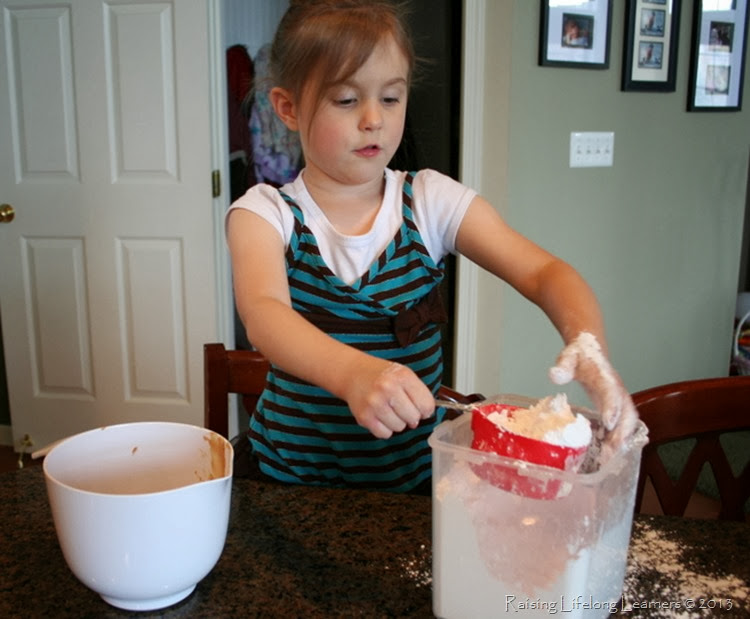Building Early Literacy Skills
It’s day three of Raising Lifelong Learners – a Ten-Day Series. Yesterday we talked about cultivating a learning-rich environment to encourage young thinkers. Today, we’re tackling practical ways to build early literacy skills in kids.
Literacy is the foundation of lifelong learning.
We live in a print-rich world. From the signs on the highway to the packaging surrounding the products we buy, kids need to be strongly literate if they are to be active citizens. Therefore, our first job as parents who are cultivating the next generation of world-changers is to instill in them a love of literacy.
We want them to read widely with lots of variety. We hope they’ll write – their hopes, dreams, thoughts, and complaints. Journals, diaries, articles, letters to the editor, blog posts, and books – we want them to contribute to the world in tangible ways, and to do that, they need to love words.
So how can we help them? Especially if they’ve already developed an aversion to the written word?
Start at Home
For little ones, verbalize what you’re thinking. “I’m making cupcakes right now, do you want to help me? Great! Here, squish this piece of candy right down in the middle, we’re going to bake it inside the cupcake. Won’t that be yummy?” It doesn’t matter if they’re answering you, you’re helping them build language skills.
When they get a little bigger, ask questions. “What do you think will happen when we squish this piece of candy into the cupcake batter and bake it? Will it stay whole? Will it melt? Why?”
Finally, ask them to tell you what they’re doing. “Here, you do it. Follow the instructions in the cook book. Tell me what you’re doing and what you need me to do. Oh, you need baking soda? Why do you think we put baking soda in cupcakes? What does it do to the batter? Think about that time we made a volcano with baking soda and vinegar. Do you have an idea now?”
Have Dinner Together
I read a book awhile ago, Awakening Your Child’s Genius by Thomas Armstrong, PhD. In the foreword Shari Lewis writes, “A couple of years ago, there was a study to determine what caused children to get high scores on the SATs. IQ, social circumstances, and economic factors all seemed less important than another, subtler factor. Youngsters who got the highest SAT scores all regularly had dinner with their parents.”
So what does that mean?
It means that YOU have the power to help your child become a lifelong learner, critical thinker, and intelligent communicator by giving your family dedicated time. Sit down and talk. Share stories. Cultivate conversation. Play word games. My kids LOVE these and these. We keep them at the table.
Early literacy skills are based on oral communication.
Fill Your House with Words
Buy books.
Go to the library.
Have several eReaders for travel.
We have boxes of children’s books, bookshelves in every room, and are now transitioning to eReaders simply because we are living in Teeny House and don’t have a lot of space to hold all of the books I’d like to have. Plus… books are often offered for free on Kindle.
In fact, we have the original Nook Color, a basic Kindle, an iPad, and reader apps on all of our computers. Trevor has asked for a Kindle Fire for his 11th birthday, and I’m saving up for it. I know that he wants it mostly to play Minecraft, but he also loves the novelty of reading books on the iPad, and is currently reading books by some of my favorite friends – the Three Ghost Friends series of concept books and Blue Flyers – and he’s reading more than ever before.
Read Those Books
Okay… it seems like a no-brainer, but I’m going to say it anyway.
READ those books to your kids. Homeschoolers, put away the workbooks, curl up with a book about pioneer times and read history to your child. Let them read it to you. Have several books going at a time.
My kids are listening to a biography of Ronald Regan from Brian at bedtime, The Secret Garden from me at lunchtime, and a variety of other picture books throughout the day.
Logan reads to herself using our new LeapReader and loves tackling the basket of TAG books we have. Read, read, read… and read some more.
The foundation of early literacy skills is reading. Kids need to be read to often. They need to see books as the answer to everything – entertainment, information, and imagination. When they learn that the answer to all of their questions and dreams are in the pages {e-ink or paper} of books, they can accomplish anything. And they’ll be lifelong learners.
What are some of your favorite ways to encourage early literacy in your home?






